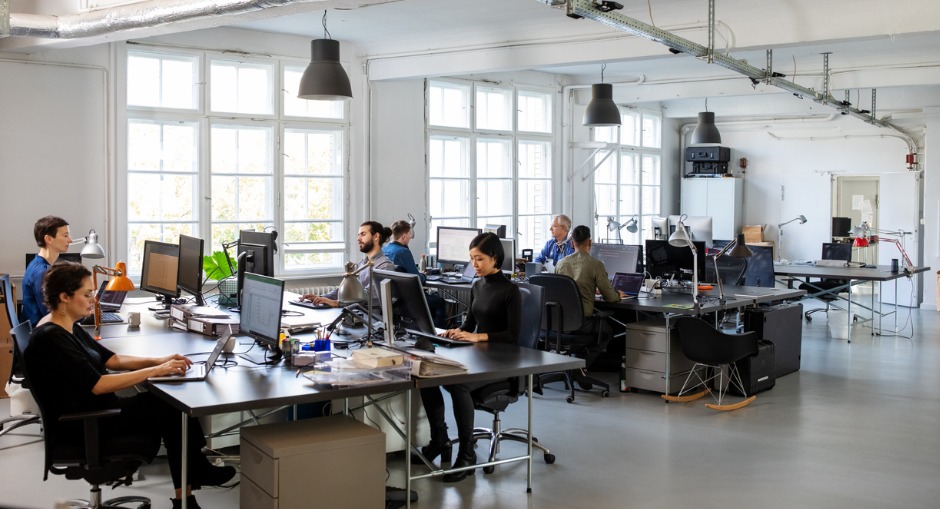
A healthy workplace is more than providing staff with the right ergonomic equipment to do their job comfortably. Other factors affect the physical and mental wellbeing of staff. It might be time to consider social ergonomics in the workplace and the wellbeing of your employees. You could be missing out on some important benefits.
What is Social Ergonomics?
Social ergonomics is everything around us, affecting our behaviour at work. The design of the office, the people within it and the culture of the organisation all play a part.
When designing a workplace, it’s important to promote relationships between colleagues, but also give staff a little privacy. Communal areas promote engagement and relationships between colleagues. Workers with a best friend at work are seven times more likely to engage fully at work. But providing private areas where staff can make a personal phone call or work uninterrupted occasionally is just as important as building relationships.
Culture of the organisation plays an important role in social ergonomics. If employees have the same values as the organisation, it’s more likely the organisation will achieve its goals. A toxic culture of bullying in the workplace can have significant negative consequences for the organisation with increased absenteeism and presenteeism, a high staff turnover, and even legal costs.
Strong leadership, communication and promoting a positive culture can help reduce workplace bullying. To turn around poor culture, an organisation should commit to recognise and reward staff for their contributions, promote relationships with co-workers by encouraging social interaction, practice flexibility, promote teamwork, encourage worker autonomy, ask for employee’s opinions and provide staff with regular feedback.
Wellbeing in the Workplace
Mentally healthy workplaces are positive and productive. With mental illness now the leading cause of sick leave in Australia, it makes sense for employers to improve staff wellbeing. Staff not only take fewer sick days, their work performance improves, engagement and productivity levels increase, the staff turnover rate decreases as do compensation claims.
It’s estimated that one in six Australians of working age is currently experiencing a mental illness, most commonly depression or anxiety. An additional one in six has symptoms of mental illness including worry, problems sleeping and fatigue. So it’s likely one in three workers are experiencing some degree of mental illness.
The causes can vary widely between home and work life, including:
-
Home life – relationship problems, finding a balance between work and home
-
Personal factors – history of mental illness, ability to cope, genetics and personality
-
Organisational factors – culture, changes occurring within the workplace, safety and support
-
Job – demands of the job, level of engagement, available resources
-
Support factors – interpersonal relationships of colleagues, leadership quality, support from managers and colleagues and training.
Any of these factors can be enough to place pressure on a worker’s mental health, but in reality many people are dealing with multiple issues.
A PWC report found that for every dollar an organisation spends on effective mental health initiatives, it receives $2.30 in return. When a staff member’s mental health improves they take fewer sick days, are more engaged and happier at work, so their productivity increases.
Organisations may need professional help in identifying the state of social ergonomics and wellbeing amongst its staff. Not all organisations have the resources in-house to tackle these issues, plus an outsider can make observations that are hard to make when you’re working there every day. The investment made in these areas can provide significant returns for individuals and the organisation.
An organisation can only perform at its highest level when all parts are working efficiently. If you’re looking to improve the design of your workplace with ergonomic equipment, call Ergolink on (08) 9240 7066 or
contact us online.